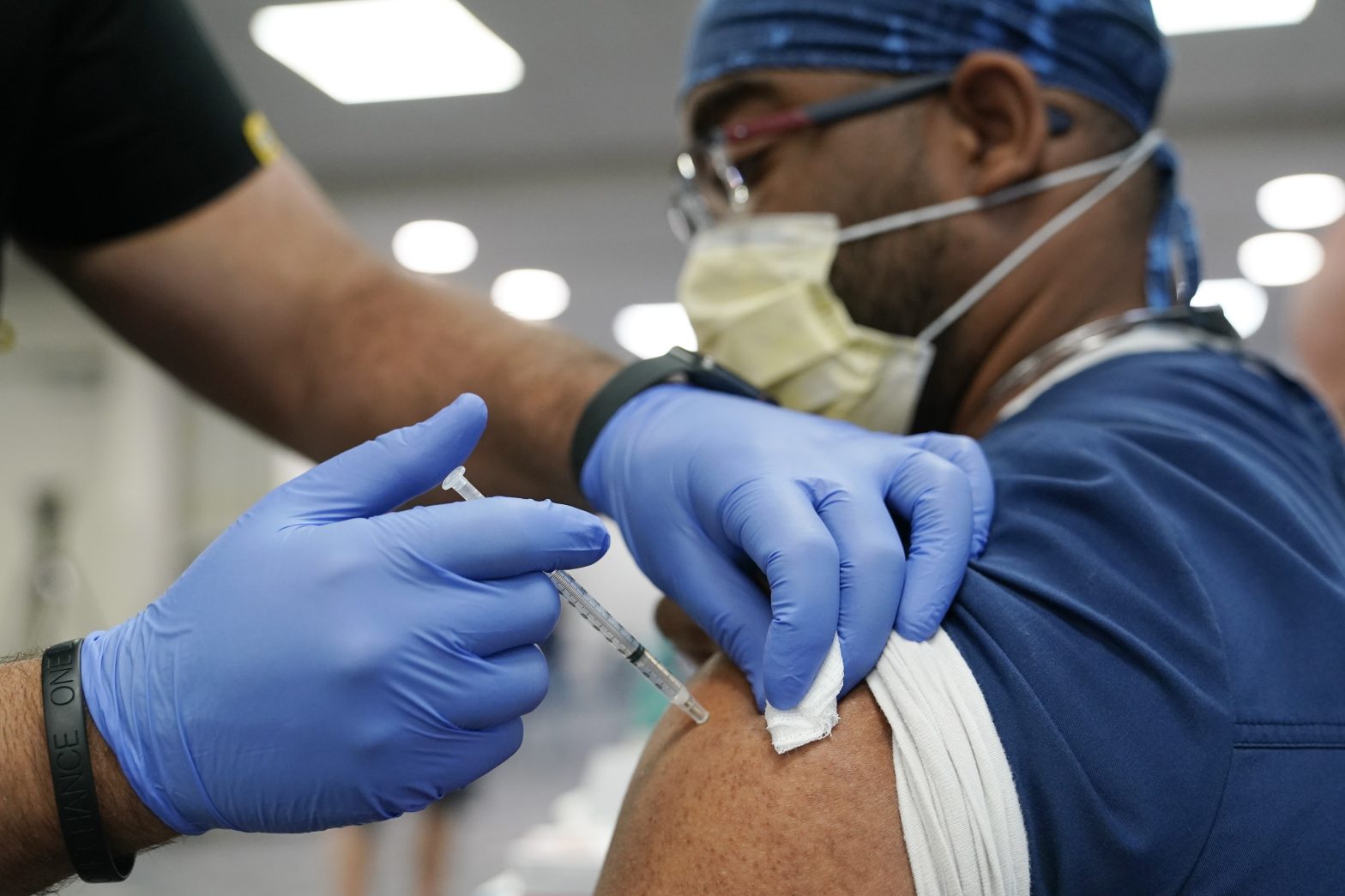Pfizer Says COVID Booster Offers Protection Against Omicron

Pfizer said Wednesday that a booster dose of its COVID-19 vaccine may offer important protection against the new omicron variant even though the initial two doses appear significantly less effective.
Pfizer and its partner BioNTech said that while two doses may not be protective enough to prevent infection, lab tests showed a booster increased by 25-fold people’s levels of virus-fighting antibodies.
Blood samples taken a month after a booster showed people harbored levels of omicron-neutralizing antibodies that were similar to amounts proven protective against earlier variants after two doses.
Scientists don’t yet know how big a threat the omicron variant really is. Currently the extra-contagious delta variant is responsible for most of the COVID-19 cases in the U.S. and other countries.
But the omicron variant, discovered late last month, carries an unusually large number of mutations and scientists are racing to learn how easily it spreads, whether it causes illness that is more serious or milder than other coronavirus types — and how much it might evade the protection of prior vaccinations.
Pfizer’s findings, announced in a press release, are preliminary and haven’t yet undergone scientific review. But they’re the first from a vaccine maker examining whether the booster doses that health authorities are urging people to get may indeed make an important difference.
Scientists have speculated that the high jump in antibodies that comes with a third dose of COVID-19 vaccines might be enough to counter any decrease in effectiveness.
Pfizer and BioNTech already are working to create an omicron-specific vaccine in case it’s needed.
Antibody levels predict how well a vaccine may prevent infection with the coronavirus but they are just one layer of the immune system’s defenses. Pfizer said two doses of the vaccine should still protect against severe disease, because the mutations in omicron don’t appear to hamper one of those other defenses, T cells that fight the virus after infection sets in.
“Although two doses of the vaccine may still offer protection against severe disease caused by the Omicron strain, it’s clear from these preliminary data that protection is maximized with a third dose of our vaccine,” Pfizer CEO Albert Bourla said in a statement.
Pfizer’s announcement had an immediate impact on U.S. markets. Futures that had pointed to a lower open reversed course in seconds and swung solidly to the positive with the Dow jumping almost 200 points.
___
The Associated Press Health and Science Department receives support from the Howard Hughes Medical Institute’s Department of Science Education. The AP is solely responsible for all content.























